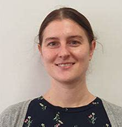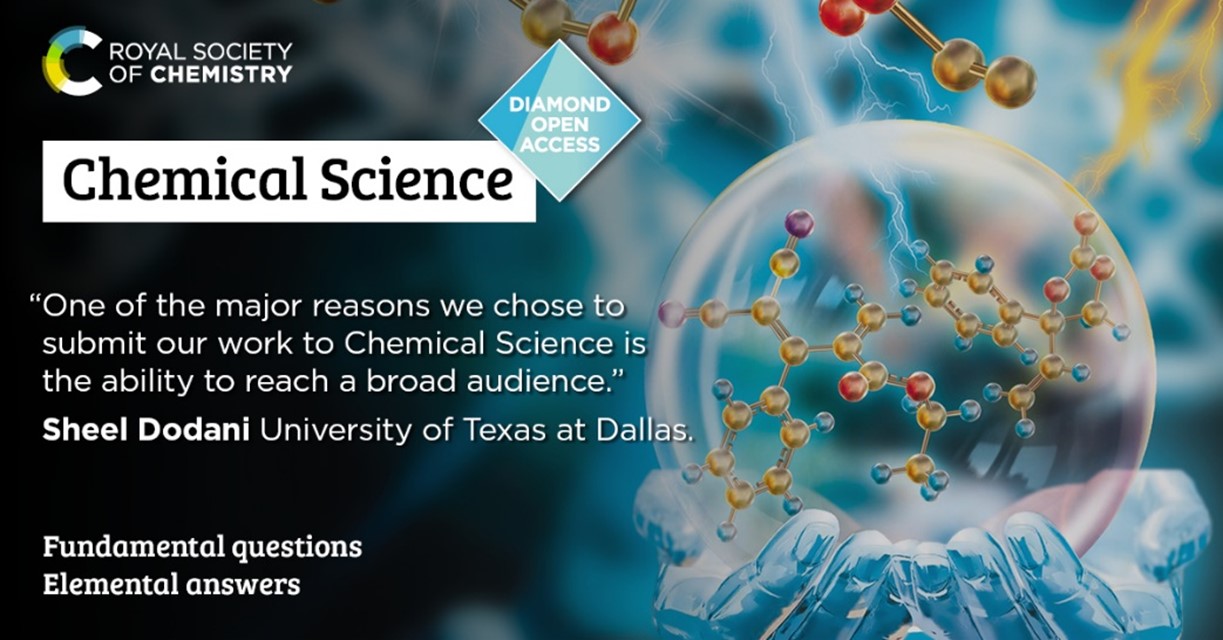To further thank and recognise the support from our excellent reviewer community, we are highlighting reviewers who have provided exceptional support to the journal over the past year.
This month, we’ll be highlighting Dr Meredith Borden, Dr Isabelle Landrieu, Dr Mattia Silvi and Professor Kazuaki Ishihara. We asked our reviewers a few questions about what they enjoy about reviewing, and their thoughts on how to provide a useful review.

Dr Meredith Borden, Trinity University. Dr Meredith Borden works to develop new catalytic strategies for controlling polymer synthesis with visible light, and is interested in applying ideas from small molecule catalysis to challenges in polymer science.

Dr Mattia Silvi, University of Nottingham. Dr Mattia Silvi’s research focuses on discovering new practical and sustainable methodologies for chemical synthesis. His group is currently developing novel visible-light mediated strategies to access reactivity that was previously elusive.

Dr Isabelle Landrieu, University of Lille. Dr Isabelle Landrieu is interested in the tau protein, with a focus on its phosphorylation and interactions, towards the understanding of its dysfunction in Alzheimer’s disease development using approaches at the interface of biology and chemistry.

Professor Kazuaki Ishihara, Nagoya University. Professor Kazuaki Ishihara’s research is focused on the rational design of high-performance catalysts based on acid–base combination chemistry. In particular, he is interested in the catalytic use of halogen elements instead of transition metal or rare metal elements to design greener redox catalysts.
What do you enjoy most about reviewing?
Dr Meredith Borden: Reviewing gives me an opportunity to think deeply about chemistry. I appreciate the privilege of being one of the first people who has the opportunity to engage with the new and exciting research my peers are performing.
Dr Mattia Silvi: Reviewing is an opportunity to open a scientific discussion. When you review a paper, your suggestions and recommendations become part of the work. You provide a different perspective, which may complement the vision of the authors. This may lead to a significant enhancement of the overall quality of the work. It’s great to see the positive impact of your suggestions.
Dr Isabelle Landrieu: I enjoy the critical analysis that it requires. I like to confront my report to those of other reviewers of the manuscript to improve my own skills. I appreciate when I have the ability to contribute to the quality of the published article.
Professor Kazuaki Ishihara: The review of high-quality manuscripts submitted to Chem. Sci. provides an opportunity to explore new chemistry and think deeply.
What encouraged you to review for Chemical Science?
Dr Mattia Silvi: Chemical Science aims at publishing top-quality innovations in chemistry. As a scientist working in the field, I am happy to provide my contribution to help to maintain and enhance this outstanding level.
Dr Meredith Borden: I always enjoy reading the papers published in Chemical Science because of the breadth of chemistry they highlight so I was eager to support the journal as a reviewer.
Professor Kazuaki Ishihara: Most manuscripts submitted to Chem. Sci. are expected to be of high quality and I enjoy reading and reviewing them. I am happy to be able to review manuscripts and contribute to making them better ones.
Do you have any advice to our readers seeking publication in Chemical Science on what makes a good paper?
Dr Isabelle Landrieu: For me a good paper is an argumentation consolidated by each presented rigorous experiment. I like the clarity of a single line of thought that develops an innovative idea with impact of the findings well-developed by the authors.
What advice would you give a first-time author looking to maximise their chances of successful peer review?
Dr Mattia Silvi: Originality and innovation are essential for an excellent scientific report. The first page of the paper should clearly and concisely show the originality of the paper and explain how it stands in comparison with the state-of-the-art. Images and schemes should be properly used for this purpose. Furthermore, it is fundamental that the technical aspects of the paper are well presented and correct.
Finally, probably the most valuable recommendation I can give is: discuss, discuss, discuss… Chat with your colleagues prior to submission. Let them review your draft submission. Be available to do this for them when they need it. Make sure that people reviewing your draft are honest in giving their opinion. Good science is often the result of good communication.
What has been your biggest learning point from reviewing?
Dr Meredith Borden: I have learned more how to present science clearly and succinctly both in the written portions of a paper and how to create captivating figures. Reviewing has really cemented for me the idea that when writing a paper, you want to make it easy for the reader to follow through clear organization and alignment of text, figures, and references.
Tune in next month to meet our next group of #ChemSciReviewers!
If you want to learn more about how we support our reviewers, check out our Reviewer Hub.
Interested in joining our ever-growing reviewer community? Apply here now!


























